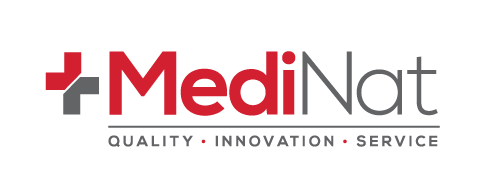
Alcohol and drug abuse have become very prevalent in today’s society; as a result, employers have every right to be concerned about how this usage may impact the performance of their employees. Considering the fact that employees abuse different substances pose a nightmare to themselves as well as their colleagues, it has become essential for employers to start looking into workplace drug testing.
Drug use often leads to reduced productivity, absenteeism, and the generation of bad morals in the organisation. In many cases, you will find that the other workers will have to put in more effort to achieve the end goal. As an employer, you should not assume that drug and substance abuse will not affect your work in any significant way. Studies indicate that one in every ten workers in an Australian company is likely to test positive when subjected to a random alcohol and drug screening test, according to NCETA.
Additionally, it has been seen that many workplaces where employees are screened or tested for the first time using urine drug test kits will typically record some positive results. This begs a few questions, what is the suitable and legal policy when it comes to the issue of drug and substance abuse in the workplace? How and when should the company screen its employees?
Alcohol and drug testing in Australian companies are not as common as it is in other countries, e.g., the United States where employers have increasingly been using it since the ’90s. Many companies spread across different industries have taken on this approach, especially companies that have many employees. In Australia, the drug screening is mainly used in industries where its use would jeopardise the safety of the public, e.g mining, the police and transport industries.
These are industries where unrestrained use of chemicals or hazardous substances may pose a series of serious safety issues. There are industries, e.g., aviation where specific legislation has been put in place authorising the employers to conduct mandatory testing. And this is a position that concurs with an attitude currently held by many Australian workers, based on the results of a study conducted in 2004 by the Privacy Commission.
The commission was able to establish that many workers held the view that random drug test was appropriate, but only if they were being used to enforce safety. However, recent developments indicate that many employers in other industries are also becoming interested in ensuring that they get to maintain and sustain a workplace environment that is entirely drug-free. But there is one issue holding them back —there are legal obstacles to testing your employees for drug use:
1. Consent
You cannot force your employer to take a drug test regardless of whether you are using saliva drug testing kits. The question that emerges is how you as an employer can ask for consent subject to employment. The best way to go about this would be to incorporate a policy that should then be adopted as a collective agreement by all the employees.
2. Privacy
Having your employees undergo mandatory drug tests also raises various privacy-related concerns. Collecting information about the drug tests will in many cases fall under the categories of health or very sensitive information. It is, therefore, pertinent to understand that the gathering and utilisation of this data are regulated by both state and federal legislation. You need to help your employees get a better understanding of drug testing legislation by having them undertake regular drug and alcohol testing courses.
The NPP (National Privacy Principles) on the collection of personal data can help you get a better understanding of these issues. A closer look at NPP1.1 shows that gathering this data need be essential as compared to the invasiveness of subjecting one to the test. This can easily be demonstrated in workplaces where intoxication can pose a safety risk, given that all employers ought to ensure that they have created a safe working place under the OH&S rules.
NPP1.2 states that the process of collecting the information should be lawful and fair to the employees. As such, any employer who is looking to impose random tests needs to make sure that they have put in place policies and procedures to help guide the process. The rules and regulations should also be communicated to the employees in advance before the process can start.
3. Job Relevance
The drug testing methods in use today, e.g., urine kits, saliva kits, and alcohol breathalysers can quickly detect an employee’s exposure to different drugs, but they cannot determine whether the said employee is impaired. This is because there will be drug traces that will be left behind once the ingested drugs have already had an effect. This means that an employee can easily object to testing by stating that what they do when they are not at work is in no way pertinent to their work. An employer, you will need to have a clear policy about why you are testing for drug and substance abuse. Make sure you outline why you are doing this, the procedure that you will follow in case an employee refuses to be tested and what will happen in case the drug test gives a non-negative result.
Which Circumstances Can Drug Screening Be Allowed or Permitted?
As an employer, there exist various circumstances that may lead you to want to perform drug tests on your employees:
• During hiring. You can use it as a condition for one being hired by your firm
• Random drug tests
• If you suspect that a specific employee is intoxicated
• Following an incident in the organisation
4. Appropriate Policies
Being an employer, it is your mandate to make sure that you come up with policies that will guide all the people working in your company. The policies should address the employees, as well as the people managing your employees. Keep in mind that it is the supervisors and managers who will have to address these issues whenever they arise. If you do not know how to go about it, you should check out guidelines that were published by the NSW Work Authority on how to develop workplace policies for drug and alcohol abuse.
There are also other governmental bodies that have published their separate materials on this particular subject. As an employer, some of the legal issues that are likely to affect you with regards to this subject include:
• Come up with a clear procedure to be used in reporting drug use and the disciplinary measures to be taken
• Make sure that management undertakes drug and alcohol testing courses which will help them gain skills on how to identify employees who may be abusing drugs.
• Identify tolerance and testing protocols that are to be used within the organisation. This means ensuring that all employees have been informed about the methods that will be used in testing for drugs, their accuracy, and what will happen in case they fail the test.
• Ensure that employees who experience issues with alcohol and drug abuse are provided with counselling and all the support that they require.
From the policies, examples, and laws discussed above, it is clear that there are lessons to be learned by employers with regards to workplace drug testing in Australia. The takeaway, however, there is a need to come up with clear policies about how to identify hazards at the workplace and any disciplinary procedures that will be applied when an employee is found to have been abusing drugs at work. It is best to make sure that you get professional advice from the experts before drafting your policies.

